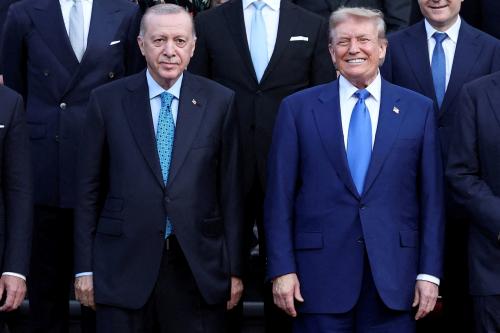

9:00 am EST - 10:00 am EST
Past Event
Over the past decade, the United States’ partnership with Turkey, a long-standing NATO ally, has been troubled by differences in approaches to the Middle East and Russia, Ankara’s illiberal turn under President Recep Tayyip Erdoğan, and the U.S. partnership with the Syrian Kurds. Moving forward, Donald Trump’s return to the White House offers both possibilities and challenges for a rethink in both capitals’ approaches to the relationship. But what would that recalibration look like for Ankara or Washington?
On December 11, the Center on the United States and Europe held a virtual discussion with several of the contributors to “Solving Washington’s Turkey conundrum,” a recent Brookings collection of essays on the future of U.S. relations with Turkey. They discussed the prospects of resetting a complex and ever-evolving relationship as the second Trump administration comes into office.
Viewers asked questions via email to [email protected] or on X/Twitter @BrookingsFP using #USTurkey.

Moderator

Aslı Aydıntaşbaş
September 23, 2025

Aslı Aydıntaşbaş
July 3, 2025

Aslı Aydıntaşbaş
June 25, 2025